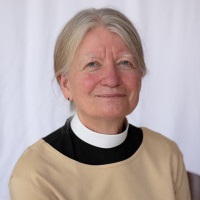Commentary on Isaiah 42:1-9
Today’s lection is one of the four “Servant Songs” in Isaiah. The church has nearly forever seen these texts as pointers to Jesus. That is not a bad move in itself, unless we use it as a way to distance ourselves from this scripture. Jesus took part of today’s reading as his text in the Luke 4 sermon and even angered some of his congregation by telling them they were witnessing its coming to pass.
Light is a fascinating subject. It is used metaphorically in both the Old and New Testaments (Jesus to followers about them: Matthew 5:14. Jesus about himself: John 8:12 and 9:5, Luke 2:32). In many cases the metaphor is used with the sense of the insiders being light for others. Although a metaphor, it has a basic, easily-grasped meaning. And yet there is a deeper meaning, I think, because light is in at least one dimension different from other quantities.
If we are in a small heated room in a large cold building we will want to take care that the door remains closed, lest the heat leak out into the hallway and dissipate to the point of no longer being useful to those of us in the room. Imagine that someone in the cold hallway knocks on the door and asks that we keep it open so that they can share the heat. That would be a foolish thing to agree to. We would do better to invite the person into the room to share its warmth.
Now change the story slightly. Imagine that temperature is no longer the issue. Imagine that our room is the only one in the building with working lights. Now if someone asks us to open the door to share the light out into the hallway, we would have no need to hesitate. Whatever light is in the room will not diminish perceptibly by throwing the door open. (There may be instruments sensitive enough to measure a difference in the room’s remaining light. But I do not think that anyone in the room could tell the difference with the naked eye.) Unlike heat or air-conditioned air or food or money or nearly anything else, light can be shared with no diminution to those doing the sharing.
Another property of light is important to the Bible’s use of it as metaphor: light does not exist for its own sake alone. That is, the point of turning on a light in a dark room is not so that everyone may stare at the light fixture. Rather, the light makes it possible for people to see other things that would be invisible to them otherwise.
Now, how do these two properties affect our reading of Isaiah? It is not clear whether the “you” in verses 5-9 is the same as “my servant” in the preceding section, although clearly Jesus reads them that way in his inaugural sermon in Luke 4. (Regardless of Jesus’ usage, we do well to remember we are not Jesus.) In addition to its other layers of meaning, God is giving us as a light to the Gentiles. No matter how enthusiastically we live that calling, it will not cause us to end up in darkness. Whatever light we have will not be dangerously diminished by our sharing of it. And the results of that sharing will be allowing the possibilities of other things than people staring at us. Light-bringers and light-givers are often noticed individually, but the larger point is the light itself and what it makes possible.
What is made possible in Isaiah’s poem? What may happen is an end to blindness, the freeing of prisoners, and whatever new things God decides to bring to pass. If blindness means the inability to see, then it may be caused by darkness outside the blind person rather than a physiological problem within that individual. Thus, the end of blindness may in some cases not be medical at all, but merely the addition of light to the situation. Remember also that seeing is much more than a physical sense. We use the same word to signal understanding, as in “I see what you mean.” Whatever light we may bring to a situation might be in the service of understanding more than a change in anyone’s physical abilities.
Is this not what we could use these days? Even if the temperature were not in the high 80s now where I live, I would be happy with more light and less heat. Isaiah is speaking to a group of exiles, or post-exiles, many of whom seem to have lost their bearings. The stirring poem of chapter 40 proclaims the end of their physical exile in Babylon, yet that good news is hard for many of them to accept. To move physically from Babylon back to Judah is a long, physically taxing journey. And why would one want to go through that if at the end of the trip you have traded your home and security for a less certain life among people who are not at all happy to have you there? The books of Ezra and Nehemiah contain stories of the antagonism between those who never were transported off to exile—and therefore considered that they were God’s Righteous Remnant—and those who trudged back from so far away—and therefore considered that THEY were God’s Righteous Remnant.
Oh how I wish the “new things” God is getting ready to declare (42:9) could include outbreaks of covenant living. If only we could see that the prisons from which we need to be set free include the prison cells of our selfishness. If only the blindness from which we are healed could be our love of darkness. If only God’s light would help us to see that violence is never the best solver of problems.
PRAYER OF THE DAY
God of light, you sent a savior into the world to bring justice and release to all who are in bondage. Shine this light upon us, and show us how to bring justice and peace to all who suffer. We pray these things in the name of Jesus Christ, our Savior and Lord. Amen.
HYMNS
Savior of the nations, come ELW 263
In deepest night ELW 699
Christ be our light ELW 715
CHORAL
AdventCarol, Alfred Fedak


December 11, 2022